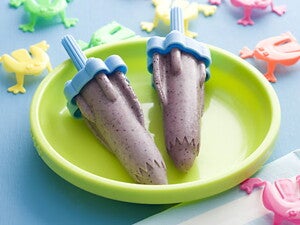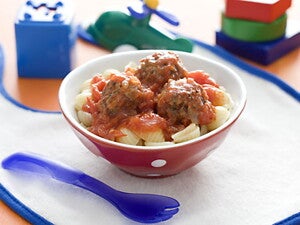
Feeding a Fussy Toddler
If you thought feeding your baby had its challenges, then eating with a toddler is going to be even more amusing for you. By the time your baby becomes a toddler at the age of 12 months, they are well on the way to enjoying foods that the family eats.
Oral motor skills
By around 12 to 18 months your toddler is able to chew well and swallow food that they lift to their mouth. They will drink from a cup but may need some help. Sit down with them and watch them while they eat as there is always the risk of choking.
By around 18 months, your toddler is able to bite off the right amount of food, even if the foods are of different textures and thicknesses. The more practice they have had at this the better they will be. They will also be able to hold and drink from a cup.
By around 24 – 36 months your toddler is able to move their jaws well in order to adjust and chew on larger bites and they are able to eat food that the whole family are eating all by themselves. Chewing develops facial muscles giving them the physical ability to get their mouth around words. Never force feed your toddler or make eating a negative experience – it can back fire into constant food refusal and fussy eating.
Eating Development in Your Toddler
Cow’s milk
From 12 months of age, your toddler can enjoy full cream cow’s milk as part of their daily diet. There are also a number of toddler milk drinks available on the market which are tailored specifically to the needs of toddlers when energy and nutrient intake may not be adequate.
Textured foods
If by 12 months of age you are still spoon feeding your toddler puree or fine mash, it is time to increase the textures that they are having and let them feed themself. Yes, it could be messy but toddlers need encouragement and practise to move on. Your toddler is learning about eating habits, textures, taste, colour and consequences, not just about what food goes in the mouth. Make eating a pleasant experience full of new discoveries and not a battle ground.
If you feel your toddler is not ready to progress beyond puree foods, discuss this with your healthcare professional as soon as possible.
Eating as a family
Even though eating at the family meal table is important and encouraged, it can be difficult to do with a toddler. The evening meal for a toddler needs to be earlier than most adults enjoy having dinner and making a toddler wait for an adult dinner time is often too late. Your toddler could have a snack or pick off your plate after consuming their main meal earlier.
Toddler help
Toddlers love to help. Encourage participation while your toddler is keen to help – you are training them for life in the future. Make meals easy. Good nutrition does not have to be complicated. Since your toddler will be helping you in the kitchen, make it a safe area by keeping your cleaning chemicals in a high cupboard; or better still use non-toxic products.
New foods
If trying new foods is a struggle in your household here are some handy tips:
- Choose good role models. Invite a child who is a good eater to dine with your toddler;
- Sit with your toddler and enjoy eating food together – you eat yours while they eat theirs or yours;
- Have your toddler help prepare the meal by standing at the bench or sink with you. Yes, patience is required;
- Allow your toddler to be involved in shopping for fruit and vegetables. They could pick out the red apples or green beans. Talk with them about what you are cooking them for dinner. You could be even more specific and have them pick a banana off the shelf, take it home, peel it, mash it and put it into a recipe;
- At every opportunity talk about fruit and vegetables and their positive benefits like: “Eating helps you run fast”. “Eating makes you strong to enjoy playing (with your pet)”. Avoid the negative-focused comments like, “If you don’t eat you will get sick”;
- Eating regularly and nutritionally is vital for regular energy over the day and emotional balance. However, allowing your toddler to attack the pantry or fridge at any time is not the best way. Routines are very important to toddlers, try to keep eating to a routine also as this will allow them to get regular meals over the day and meet their nutritional needs for growth and development.
Appetite
Don’t be concerned if your toddler eats poorly on one day and well the next. Consider their intake over a week – keep a food diary if you are concerned.
Spread their meals over the day – three meals and two snacks is a great place to start. But don’t count on your toddler actually eating everything you offer them. Toddlers are known for erratic and unpredictable eating habits. The amount of kilojoules they need to eat depends on their activity level, growth rate, general health and metabolism. Don’t take it personally when they reject the food you prepare for them, and don’t allow them to fill up on empty kilojoules just because that is what they will eat. Your job is to provide a variety of healthy foods for your toddler, and their job is to decide what, and how much, they want to eat.
Picky eating
If you feel your toddler is a picky eater, you are not alone. Be patient – picky eating is a normal part of toddler development – they are developing the power to choose.
- Provide a variety of food options—both new and familiar—and let your toddler choose;
- If your toddler refuses a particular food, never force them to eat it or finish it. Instead, move on to a different food and try that food again at a later time;
- Keep offering foods again and again—it can take about 8-10 tries for your toddler to accept a new food.
If you are concerned your toddler is not meeting their energy or nutrient needs, there are toddler milk drinks available to help meet these needs. Talk to your health care professional or a Dietitian to find out more.





